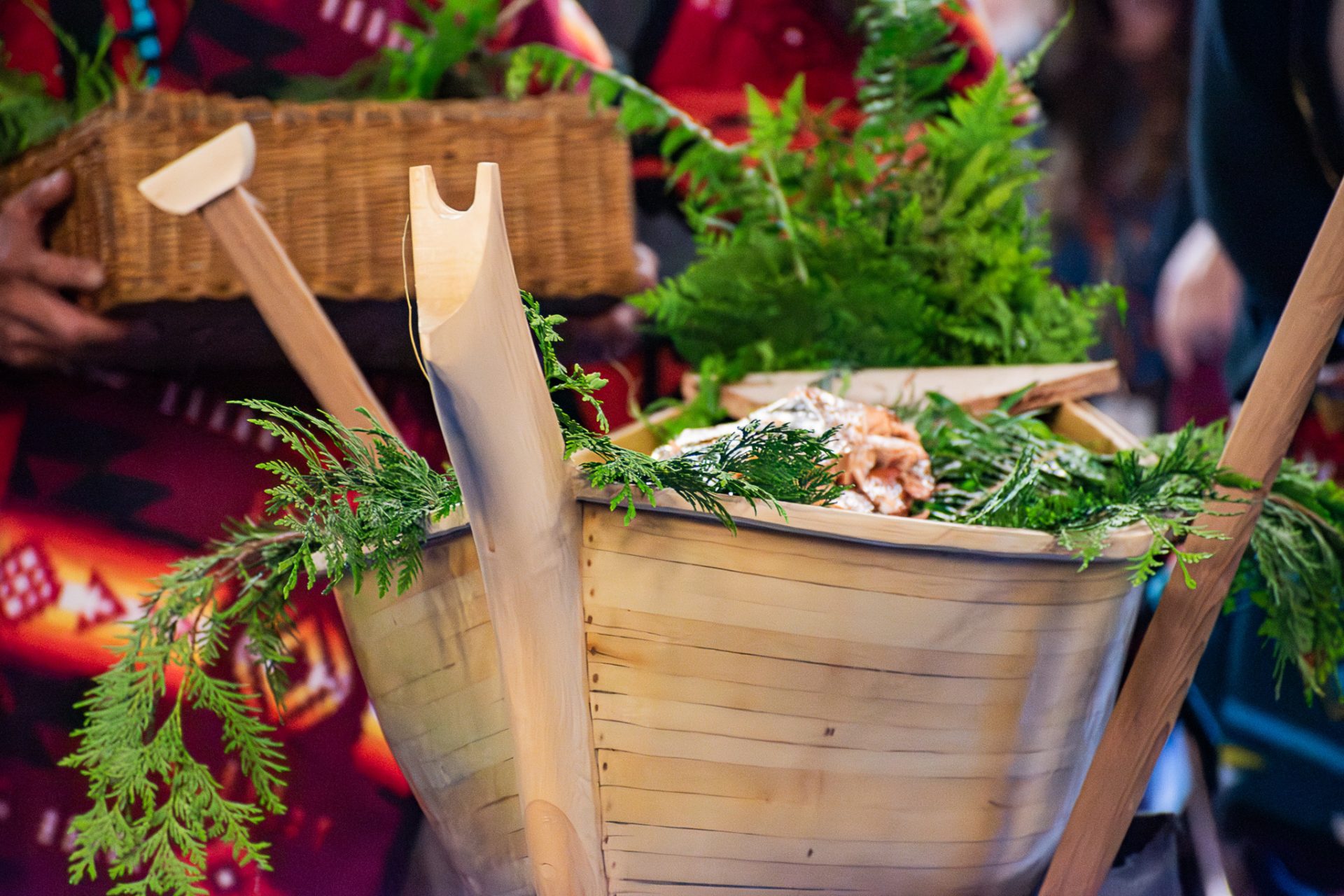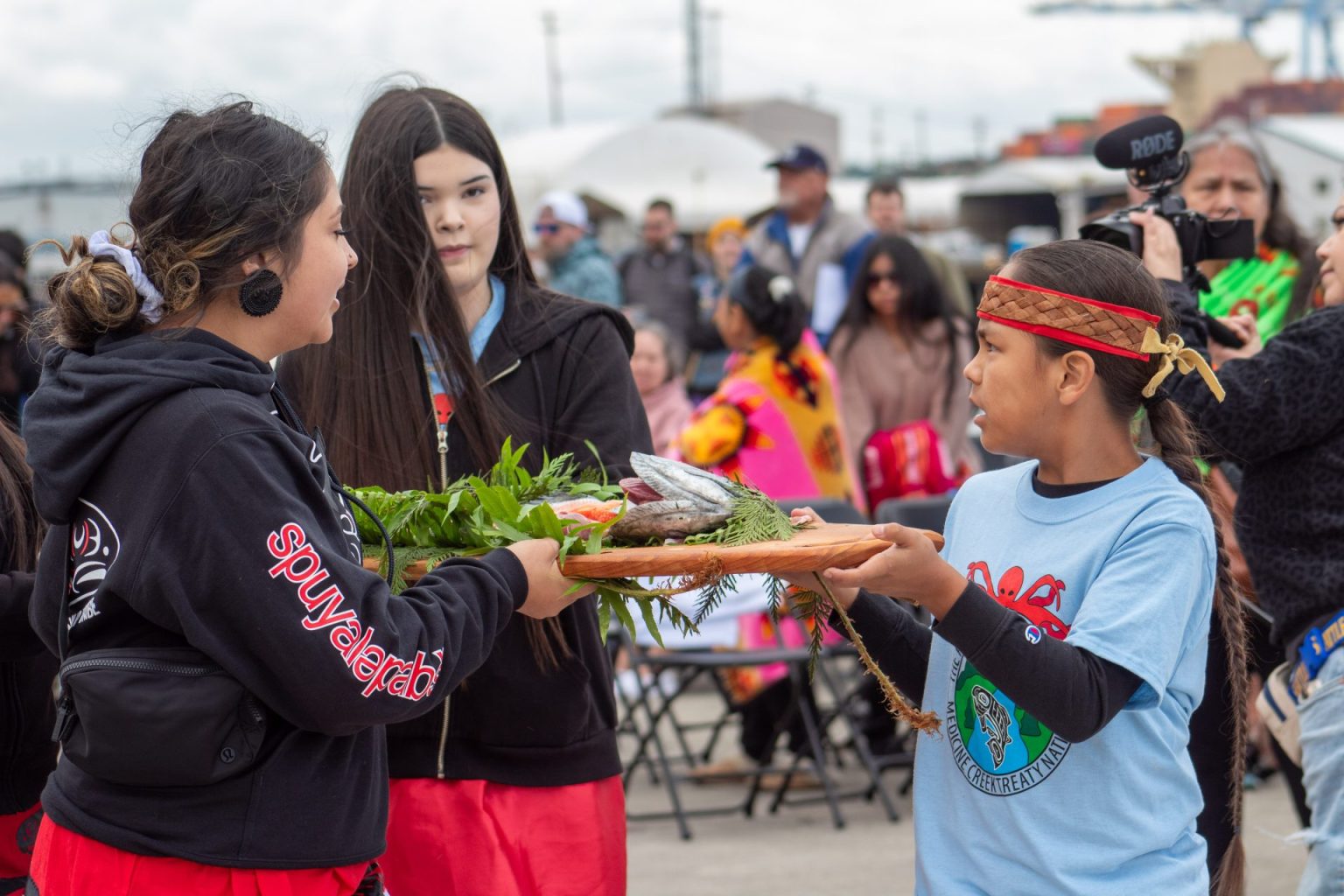
Guardians of the Current: The Yakama First Salmon Ceremony and the Enduring Covenant with Pacific Northwest Rivers
On the banks of the mighty Columbia River, where the currents have carved the land for millennia, a profound ritual unfolds each spring. It is the Yakama Nation’s First Salmon Ceremony, a sacred observance that transcends mere tradition, serving as a vibrant testament to an ancient covenant between a people and the lifeblood of their world: the salmon. Far from a quaint historical re-enactment, this ceremony is a living, breathing expression of identity, an urgent prayer for continuity, and a powerful lesson in reciprocity that resonates with increasing urgency in a world grappling with ecological crisis.
For the Yakama people, whose ancestral lands span vast stretches of the Columbia River Basin in what is now Washington State, the salmon are not merely a food source; they are kin, sacred relatives who annually sacrifice themselves to sustain the people. This relationship, enshrined in countless generations of oral histories, spiritual beliefs, and practical stewardship, predates the arrival of European settlers by thousands of years. The Columbia River, or Nch’i-Wána as it is known to the Yakama, has always been the heart of their world, and the salmon its pulsating life force.
The First Salmon Ceremony, known in some Sahaptin dialects as Kwi-nat-sa-pa or Sinyalx, is the spiritual anchor of the Yakama’s existence. It is an annual moment of profound gratitude and a renewal of their sacred duties as stewards of the land and waters. When the first salmon of the season – typically a powerful Chinook or a vibrant Sockeye – makes its journey upriver, the entire community gathers to honor its return. This isn’t just about the fish; it’s about acknowledging the intricate web of life that sustains them, giving thanks to the Creator, and reaffirming their place within that sacred circle.
The ceremony itself is steeped in ritual and meaning. It begins with the respectful catch of the first salmon by designated tribal members, often elders or experienced fishermen. This isn’t a hunt; it’s a careful, almost reverent act of receiving a gift. The chosen salmon is handled with utmost care, brought ashore, and then prepared according to ancient customs. There are specific prayers, songs, and blessings offered over the fish, acknowledging its journey and its sacrifice. The salmon is then traditionally cooked, often over an open fire or in a pit oven, ensuring that every part is utilized and nothing is wasted.
A central element of the ceremony is the communal feast. This is not just a meal; it is a sacrament. The first piece of the salmon is offered to the Creator, followed by shared portions distributed among all attendees, from the eldest elder to the youngest child. Each bite is imbued with centuries of cultural memory and spiritual significance. It is a moment of collective nourishment, not just for the body, but for the spirit of the community. After the meal, a crucial and deeply symbolic act takes place: the bones of the salmon are carefully gathered and returned to the river. This act symbolizes the belief that the salmon will return to its home, inform its relatives of the respect it received, and thus ensure the continuation of the salmon runs in the years to come. It is a powerful illustration of reciprocity and the cyclical nature of life.

"Our relationship with the salmon is a living contract, renewed each year," states tribal elder Raymond Buck, a spiritual leader deeply involved in the perpetuation of the ceremony. "It teaches us humility, gratitude, and our place in the circle of life. We do not own the salmon; we are caretakers of its home, and this ceremony reminds us of that sacred responsibility."
The significance of the First Salmon Ceremony extends far beyond its spiritual and cultural dimensions. For millennia, salmon provided the primary protein source for the Yakama and other Indigenous peoples of the Pacific Northwest, sustaining vibrant societies through long winters. The fish were dried, smoked, and stored, forming the backbone of their diet and economy. The health of the salmon runs directly correlated with the health and prosperity of the people. This fundamental dependence forged an intimate knowledge of the river ecosystem, leading to sophisticated, sustainable fishing practices and an unparalleled understanding of salmon biology and habitat.
However, this ancient covenant has faced immense pressures, particularly over the last two centuries. The arrival of Euro-American settlers brought a paradigm of resource extraction that clashed violently with Indigenous stewardship. The construction of massive hydroelectric dams along the Columbia River and its tributaries, beginning in the early 20th century, profoundly disrupted salmon migration routes. Dams like Grand Coulee, built without fish ladders, completely blocked access to vast stretches of ancestral spawning grounds, annihilating entire runs. Even dams with fish passage, like Bonneville, fragment habitat, alter water temperatures, and create a gauntlet of obstacles for migrating fish.
Furthermore, industrial pollution, agricultural runoff, deforestation, and overfishing by commercial fisheries have cumulatively devastated salmon populations. Climate change now adds another layer of existential threat, with warming river temperatures stressing salmon, altering their migration patterns, and increasing disease susceptibility. These ecological assaults have not only threatened a vital species but have also directly undermined the cultural and spiritual well-being of the Yakama Nation.
Despite these immense challenges, the Yakama First Salmon Ceremony has endured, a beacon of resilience and cultural continuity. The 1855 Treaty with the United States government guaranteed the Yakama Nation the right to fish "at all usual and accustomed places," a right they have fiercely defended in courts and through ongoing advocacy. This treaty right is not merely about access to a resource; it is about the sovereign right to practice their culture and maintain their spiritual connection to the land and its resources.
In recent decades, there has been a significant revitalization of Indigenous cultural practices, and the First Salmon Ceremony is at its forefront. The Yakama Nation actively works to restore salmon habitats, manage tribal fisheries sustainably, and educate both tribal and non-tribal communities about the importance of salmon. They operate hatcheries and participate in collaborative efforts to improve fish passage and water quality. The ceremony itself plays a crucial role in this revitalization, serving as a powerful educational tool for younger generations.
"When I participate in the ceremony, I feel connected to my ancestors and to the river," says 16-year-old Lena Chehalis, a Yakama youth who has been attending the ceremony since she was a toddler. "It’s not just history; it’s who we are, right now. It teaches us that we have a responsibility to take care of the salmon, so they can keep coming back for our children and grandchildren." Her words highlight the ceremony’s role in intergenerational knowledge transfer, ensuring that the wisdom of the past guides the actions of the future.
The Yakama First Salmon Ceremony offers profound lessons for the broader world. In an era dominated by unsustainable consumption and ecological degradation, it presents an alternative worldview rooted in gratitude, respect, and reciprocity. It reminds us that humanity is not separate from nature, but an integral part of it, bound by a sacred duty of stewardship. The health of the salmon reflects the health of the rivers, which in turn reflects the health of the people.
As the Yakama Nation continues its vital work of protecting the salmon and perpetuating their ancient traditions, the First Salmon Ceremony stands as a powerful symbol of hope. It is a testament to the enduring spirit of a people, their unbreakable bond with the Pacific Northwest rivers, and their unwavering commitment to honoring the sacred relationship that has sustained them for millennia. It is a call to listen to the wisdom of the currents, to respect the gifts of the natural world, and to understand that our collective future depends on embracing a covenant of care, not just for ourselves, but for all life. The echoes of their prayers along the Columbia River are not just for the salmon, but for a sustainable future for all.



